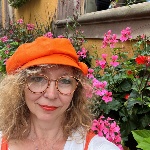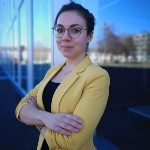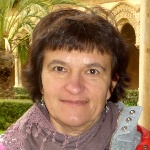Research at the Faculty of Chemistry focusses on five main topics
The faculty consists of eight institutes (the research foci of the institutes you can find on their individual homepages). The three big institutes of Inorganic Chemistry, Organic Chemistry and Physical Chemistry represent the classical areas of research and teaching within chemistry. The areas of research and the academic offerings are supplemented by activities of the five smaller institutes of the faculty (Institute of Biochemistry and Technical Biochemistry, Institute of Material Science, Institute of Polymer Chemistry, Institute of Technical Chemistry as well as the Institute of Theoretical Chemistry). The research of the faculty of chemistry is focused on the following topics:
Quantum technologies will change the way in which we communicate and process secure information, how we do sensing of analytes and fields and will lead to measurements with unprecedented sensitivity. However, existing quantum technology platforms are limited in terms of scalability, positioning of individual qubits, and the influence and correction of errors. To overcome these challenges, we investigate molecular and solid-state quantum systems,which inherently exhibit properties that can be exploited as novel platform for qubits. Such chemistry-based qubits can be tailored with atomic precision and lead to highly reproducible and tuneable quantum materials. A particular feature of the molecular approach is accurate positioning of qubits. In addition, we investigate approaches for the defined assembly of these molecular qubits in 2 and 3 dimensions, as well as the tailoring of their qubit properties and their individual addressing. In the solid-state approach, the underlying electronic structure can protect quasi particles in 2 or 3 dimensions, which in turn could form the grid for quantum technologies. These chemical approaches will allow us to develop the quantum devices of the future.
Research into new materials is crucial for the development of future energy conversion, storage and transport technologies to reduce dependence on fossil fuels and secure a more sustainable energy supply. Here we dedicate ourselves to various aspects of these technologies, including the development and recycling of new materials for solar cells and advanced battery storage or material synthesis according to bio-inspired approaches. We are also researching new catalysts for CO2 conversion as well as photocatalysts and materials for fuel cells, which are crucial for the seasonal availability of renewable energy. In addition, mixed ion-electron transport is investigated in polymers, among other things, supported by modern in-situ methods.
The structure and function of biomolecules are defined by their chemical properties, which we aim to understand from the molecular level to complex biological systems. Through experimental and simulation-based investigations, we elucidate structure-function relationships of enzymes, nucleic acids, and lipids, as well as their interaction profiles. Based on the deciphered principles, we develop sustainable biocatalysts, new synthetic pathways, and active agents, as well as bioinspired functional materials. Additionally, through the application of sequencing and mass spectrometry-based omics techniques, we integrate the gained insights into the reactivity of biomolecules into a biomedical context, for example, to understand epigenome-based regulatory systems or the allergenic potential of food proteins.
Research into new functional materials is of central importance for many areas of everyday life. Faculty 3's research approach to such functional materials is based on an intensive, synergistic interplay between chemistry, materials science and simulation (see also the Cluster of Excellence “SimTech”). Stimuli-responsive materials are the basis for sensory and actuator systems and are therefore central to new materials and substances for the fields of construction and architecture (see Cluster of Excellence “Integrative computer-based planning and construction for architecture”) and for medical technology. This research focus therefore also contributes directly to the Cluster of Excellence application “Bionic Intelligence for Health”. Confinement effects, which are observed, for example, in catalytic reactions in tailor-made mesoporous inorganic or polymeric materials with defined conducting geometries, are also the central topic of the current CRC 1333 “Molecular heterogeneous catalysis in confined geometries”, which also builds a bridge to another research focus of Faculty 3 “Crossing Borders in Catalysis and Biocatalysis”. Soft matter materials and bio-inspired approaches are also used to realize hierarchically structured architectures with conducting properties and stimuli-responsive materials (see also “ChitinFluid” project, Carl-Zeiss-Stiftung, CZS P2019-02-004).
Stimuli Responses and Confinement Effects in Functional Materials
Interdisciplinarity
An essential characteristic of the research at the institutes of the faculty of chemistry is the versatile and close cooperation with other subjects within the natural sciences and engineering at the Universität Stuttgart, e.g.
- in the GRK3112 "EpiSignal - Crosstalk of intracellular signaling pathways and chromatin modification networks" (speaker Prof. Albert Jeltsch)
- in the Research Training Group in materials science, RTG 2948 Mixed Ionic-Electronic Transport: From Fundamentals to Application, Spokesperson is Prof. Dr Jana Zaumseil (Heidelberg); co-spokesperson is Prof. Dr Sabine Ludwigs (Stuttgart)
- in the Collborative Research Center Molecular heterogeneous catalysis in confined geometries SFB 1333 (speaker Prof. Michael Buchmeiser)
- in the Stuttgart Research Centrer Systems Biology (SRC SB),
- in the Collaborative Research Center SFB 716 "Dynamic Simulation of Systems with Large Number of Particles"
- in the Cluster of Excellence SimTech Simulation Technology.
Further Projects are the Projecthouse NanobioMater.
ERC Grants
- Prof. Blazej Grabowski, Materials 4.0 (2020) (Consolidator Grant)
- Prof. Peer Fischer, Holographic acoustic assembly and manipulation (Holoman) (2018) (Advanced Grant)
- Prof. Johannes Kästner, Atom-Tunneling in Chemistry (Tunnelchem) (2015) (Consolidator Grant)
- Prof. Blazej Grabowski, Time-scale bridging potentials for realistic molecular dynamics simulations (TIME-BRIDGE) (2015) (Starting Grant)
- Prof. Hans-Joachim Werner, Advancing computational chemistry with new accurate, robust and scalable electronic structure methods (2013) (Advanced Grant)
- Prof. Peer Fischer, Chiral Nanostructured Surfaces and Colloidal Microbots (CHIRALMICROBOTS) (2012) (Starting Grant)
Further projects (examples)
- Reinhart Koselleck Project granted to Bernhard Hauer
- eForFuel: Fuels from CO2 and Electricity: EU-Projekt (Prof. Klemm )
- SFB - TRR (Lead University LMU Munique): PI Prof. Richert
- PETER - Plasmon Enhanced Terahertz Electron Paramagnetic Resonance
EU Projet (Prof. van Slageren) - EMPOWER PUTITDA: EU-Projekt (Prof. Hauer)
Office of the Dean

Monika Carey
Secretary

Dorothea Häussermann
Dr.Faculty Manager

Isabella Waldner
Dr.Faculty Manager absent from 1.10.2024 to 30.09.2025. Please contact Dr Dorothea Häussermann






